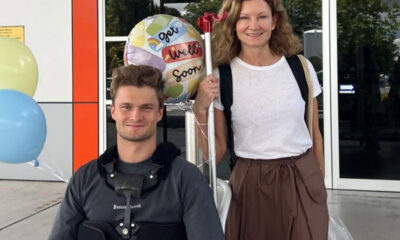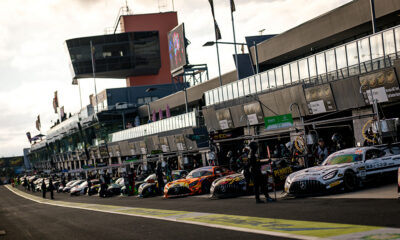
Photo: John Dagys
SRO Motorsports Group is assessing the date for the Liqui-Moly Bathurst 12 Hour by requesting feedback from manufacturers, in light of a major date clash with the joint IMSA and FIA World Endurance Championship event at Sebring in March next year.
The GT racing organizing body last week revealed Bathurst as the venue for the 2022 Intercontinental GT Challenge powered by Pirelli season-opener, with the Australian circuit hosting its established 12-hour enduro on the weekend of March 18-20.
Those dates overlap with ‘Super Sebring’, which includes a 1000-mile WEC race and the Mobil 1 Twelve Hours of Sebring for the WeatherTech SportsCar Championship.
SRO founder and CEO Stephane Ratel told Sportscar365 that the Bathurst 12 Hour date was chosen by event promoter Supercars and that his organization is in dialogue with IGTC manufacturers about their thoughts on the clash.
“We are looking at the best date,” said Ratel.
“We have a promoter of the 12 Hour which is Supercars, so according to their own calendar this is the best date for them. Now we are waiting for the feedback from the manufacturers.
“We are sending a letter to the manufacturers, asking if they are going to commit. Then we will relay the information to Supercars and see if a better date can be found.”
Asked when a final decision on Bathurst’s IGTC date can be expected from SRO, Ratel said that the process is “not going to take forever.”
The clash between two of the world’s biggest sports car racing events is expected to impact a significant number of drivers and other personnel within the industry.
For example, the 2020 Bathurst 12 Hour field included seven full-time drivers from the WeatherTech Championship and eight from the WEC.
“We have asked the manufacturers to come back to us quite rapidly,” said Ratel.
“We knew there was a clash, but the date has been proposed and the best [thing to do] is to pass it on to the manufacturers. They might say, ‘we can manage, it’s OK’.
“They might say, ‘we can’t do that, the date has to change’. We will relay the information.”
Even with the Sebring clash to consider, the status of Bathurst remains at the behest of international travel restrictions for arrivals into Australia.
The 12-hour race was canceled this year due to the Australian border being almost entirely closed in response to the coronavirus pandemic.
Heavy restrictions have been kept in place since then, although Australia will allow its own citizens to travel internationally from November as part of an easing process.
“It’s most important that we are sure that we can go to Australia without quarantine,” Ratel said.
“I think the latest we [can] go without being in the European season, which starts at the beginning of April, is why we think the end of March is the right moment.
“The international GT3 calendar is getting very increasingly busy.”
SRO’s announcement of the 2022 IGTC calendar came with a revision to the GTWC Europe schedule for next year, involving the official pre-season test at Paul Ricard being pushed back to the midweek days immediately after Bathurst’s proposed March date.
However, the new date for the traditional two-day test is fluid depending on what happens to Bathurst.
“It’s easier to change a test than it is to change [Bathurst],” explained Ratel. “I think we’ve got more flexibility on the tests. If the test needs to move, we will do it.
“We organize this Intercontinental GT Challenge for factory-supported teams, so it’s essential that we hear from the manufacturers.”
Ratel indicated that the Bathurst clash is a matter to be dealt with internally alongside the IGTC competitors and Supercars.
“We’re not going to ask [IMSA and WEC] to change their date, of course,” he said.
Both IMSA and the WEC declined to issue comments on the Bathurst-Sebring scheduling conflict when approached by Sportscar365.
























